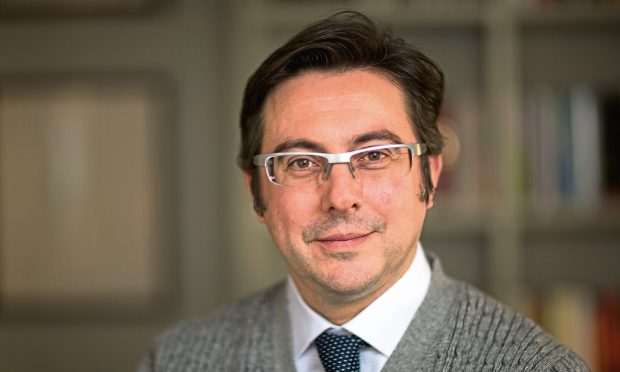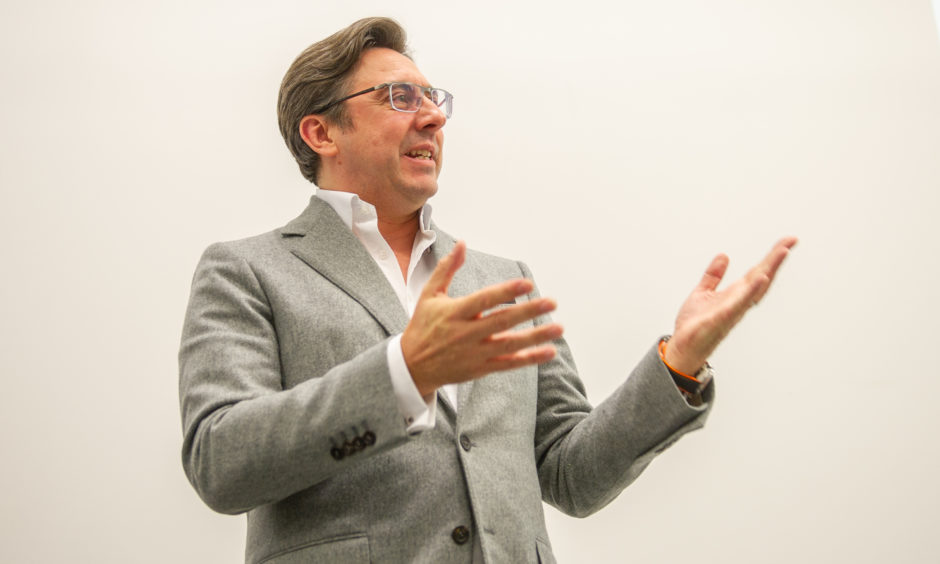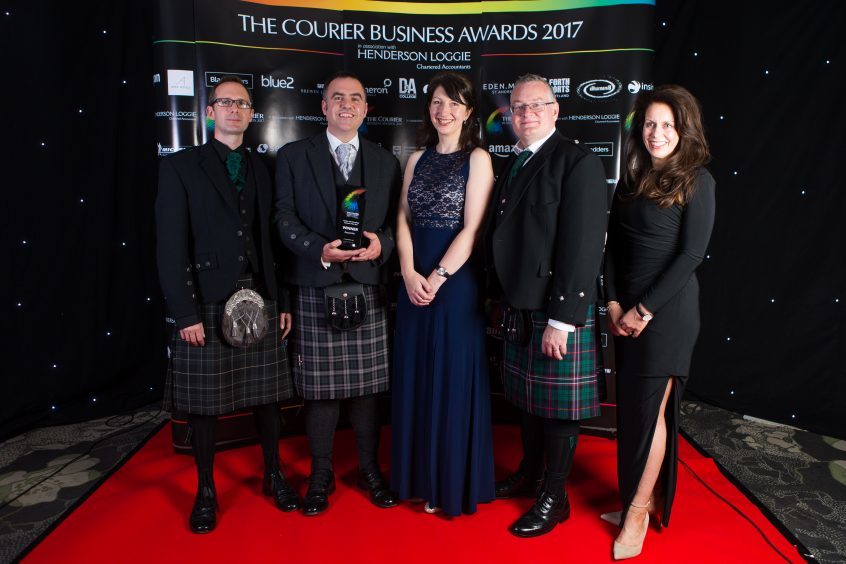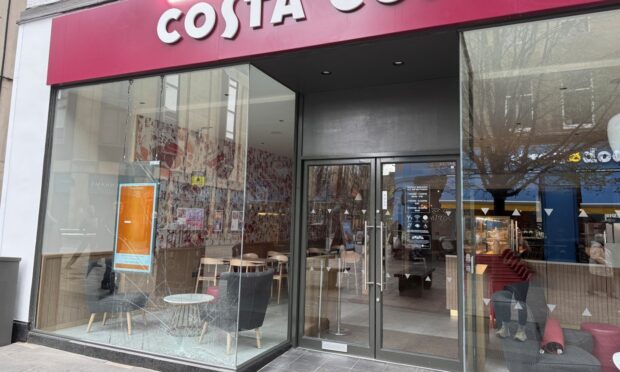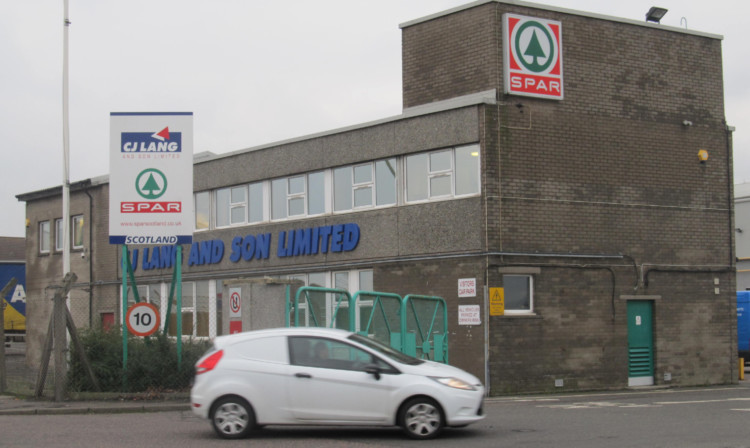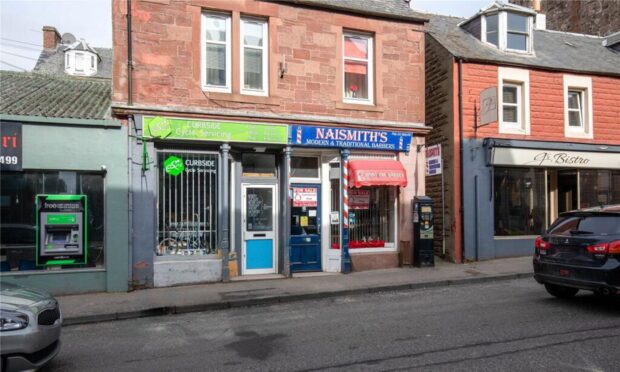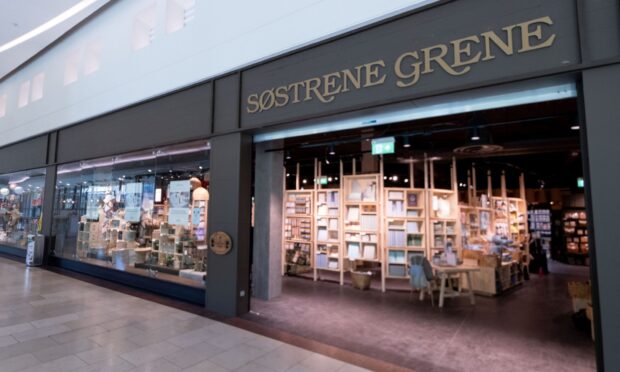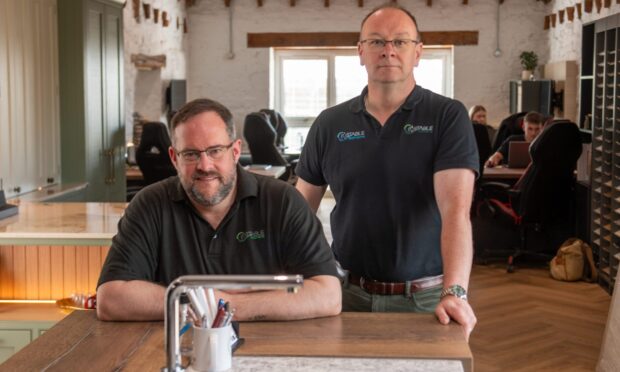A Dundee University scientist is sitting on a paper fortune of £370 million after the blockbuster stock market debut of the drug company he founded.
Exscientia, which has offices in Dundee and Oxford, is valued at £2.5 billion after its debut on the Nasdaq stock exchange in America yesterday.
The company was founded by Andrew Hopkins while he was based at Dundee University.
It uses artificial intelligence and machine learning to narrow down drug candidates.
In some cases it can cut down a drug’s development time from five years to 12 months.
Since being established in 2012, the company has signed a series of multi-million pound deals with global drug giants.
It raised almost £400m in a funding round earlier this year.
Mr Hopkins has kept Exscientia shareholding
Mr Hopkins, 49, continues to lead the company and has not sold any of his 18.6 million shares as part of the stock market listing.
The company sold 13.9 million shares at $22 to raise $304.7m (£225m). At its $22 debut the company was valued at $2.7bn (£2bn).
The shares soared to as high as $30 after its debut before falling back to $27.
At $27 a share, Mr Hopkins’ stake in the company is worth $502m, or around £370m.
This amount puts him ahead of musicians Sir Mick Jagger (£310m), Sting (£220m) and Eric Clapton (£195m) on the Sunday Times Rich List. The Queen is worth £365m.
Concurrently to the stock market listing, Exscientia sold a further 7.3 million shares at $22 to Softbank and the Gates Foundation. This raised $160m (£118m).
Exscientia history and operation in Dundee
The Dundee University spin-out company is one of the city’s life sciences success stories.
It continues to have 25 staff at the Dundee One building at City Quay.
However, Exscientia was also highlighted as an example of a company who has left the city to grow by Dundee University principle Professor Iain Gillespie.
He hopes the development of a £40m biomedical campus – which will offer more lab space for expanding firms – will keep companies in Dundee.
As well as its Oxford headquarters, Exscientia has offices in Vienna, Miami and Osaka.
Despite its success at winning deals and investment, in its most recently filed accounts at Companies House, Exscientia made a loss.
The accounts for the year ending December 31 2019, showed a pre-tax loss of £8m. Accounts for 2020 will be publicly available next week.
Mr Hopkins urges global mindset
When he gave a ‘masterclass’ presentation at Dundee University two years ago, Mr Hopkins urged entrepreneurs to “think globally”.
He said Exscientia was formed by three people with a credit card in a coffee shop.
Another key bit of business advice was to “hire people smarter than you”.
He said: “You have to be dogged in your persistence”.
He concluded the talk by urging entrepreneurs to “enjoy the journey”.
